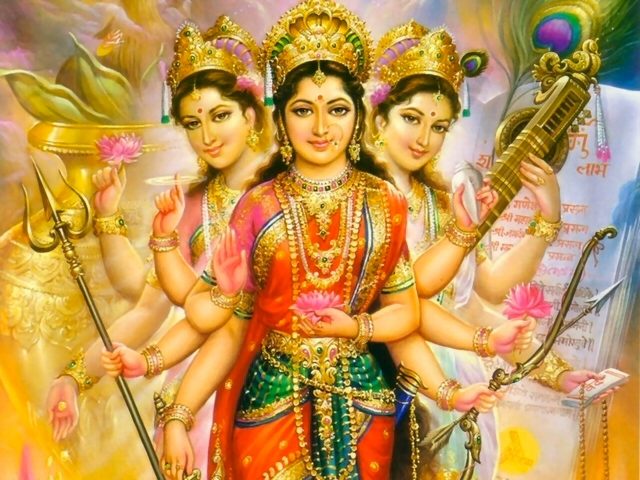In Life on the Screen, Sherry Turkle introduces the idea of multiplicity as the human identity in the chapter on Identity Crisis. Multiplicity is the effect of our communities and other social constructs, real and virtual, on our persona. She states that traditional understanding and interpretations of the healthy human personality as rigid and immobile has been replaced by the notion of adaptability and fluidity, and as a result our identities are a conglomeration of many smaller personalities. Another part of her argument that is interwoven in multiplicity is the “saturated self” as the source of our constant deconstruction and reconstruction of our identity. Turkle compares this idea to Hindu culture based on similarities in the belief that many things influence a person.
The depiction of multiple gods representing one entity. Credit: scribbleofayoungartist.
In modern Western societies today, the whole person strives to fulfill his or her various parts. In our fast-paced and ever-changing world, the ability to adapt to different situations proves to be favorable. The idea of a person engaging their whole self is even highly regarded in the media and has led to the popularization of activities, such as yoga, that only a few decades were practiced by a small section of the population. The belief that one needs to feed the mind, body and soul is rooted in multiplicity, and many people today are taking efforts to develop the whole self than in previous generations.
credit: lacunaloft.com/try-yoga
In its social context, multiplicity serves not only as an individual’s identity, but rather, it can be definitive of whole social groups and classes. In a special series a couple of years ago, Samuel Staley from NPR discussed the fluidity and mobility of the middle class. In the face of economic disparity, the middle class finds itself deconstructing and reconstructing, and essentially creating a new identity that meets social changes.
These examples of multiplicity in the media enhance Turkle's position on the importance of multiplicity as the human identity. As inhabitants of a world so multi-faceted, it only makes sense that the human identity reflects such complexity.

